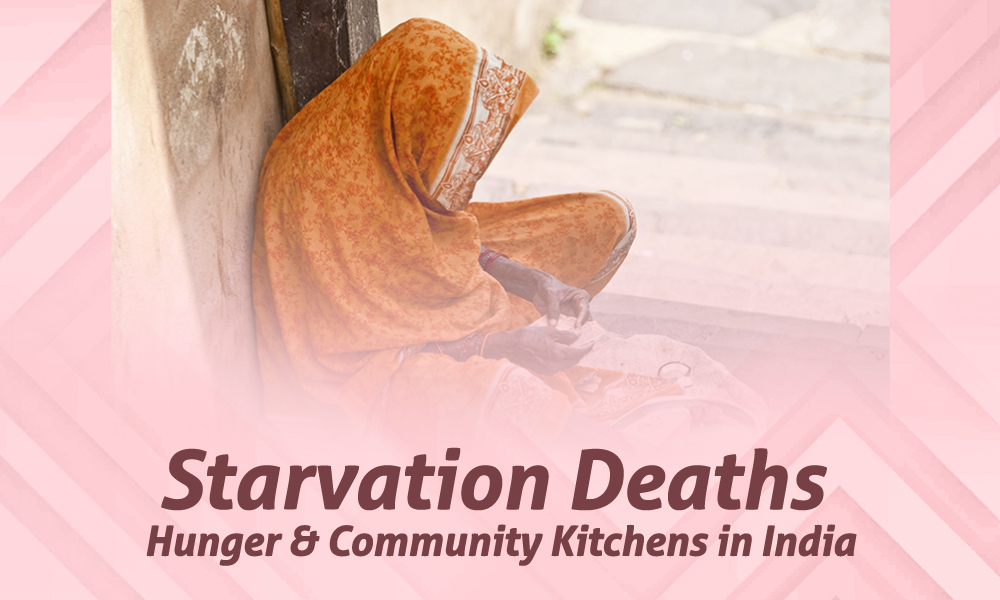“In a world where 690 million people are hungry, 60% of them are women. Gender disparity is omnipresent, even in the case of hunger and undernutrition. Deep-seated intra-household gaps lead to inequitable access to food and nutrition. Commonly, in Indian households, women are the first to bear the brunt of hunger even though they work harder to secure food for their households. The unspoken laws of a traditional household save the lion’s share of the food for men, followed by children. Women are often expected to feed themselves with what is left.”

Hunger, like other social indices, is also heavily shaped by other factors like caste, religion, gender, region and ethnicity. Women from working class backgrounds often face the brunt of it, and this affects their maternal health as well as that of their children. As Feeding India, an organization working in the field has argued:
“In a world where 690 million people are hungry, 60% of them are women. Gender disparity is omnipresent, even in the case of hunger and undernutrition. Deep-seated intra-household gaps lead to inequitable access to food and nutrition. Commonly, in Indian households, women are the first to bear the brunt of hunger even though they work harder to secure food for their households. The unspoken laws of a traditional household save the lion’s share of the food for men, followed by children. Women are often expected to feed themselves with what is left.”
Additionally, a CARE (a global organization working on hunger, poverty and social justice) report released August 3, 2022 has addressed the direct relationship between gender inequality and food insecurity. It revealed that food security went down as gender inequality increased across 109 countries.
Tragically, the Indian government is consistently denying all international data that points to the fall in social indices, particularly post-COVID. The ostrich in the sand approach has left many vulnerable populations literally hungering for a basic meal even as tones of food is wasted across the world and there is no real lack of food, only of delivery and logistics, as well as concentration of wealth in a few hands.
Project Ehsas, in this field, is a new attempt that started out in 2021 to work towards the establishment of community kitchens, roti bank and other unique ways to address hunger and malnutrition. An initiative of Human Welfare Foundation, Project Ehsas now has kitchens in Delhi, Kolkata, Lucknow, Mumbai and other places are in the offing.
As their website states:


0 Comments